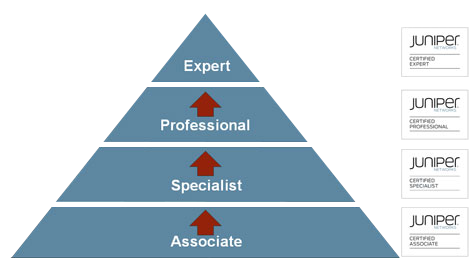How to become a Network Engineer?
If you aspire to become a network engineer, this post is going to guide you in making up your mind. Read through.
From the outside, the whole information technology profession can seem mysterious. Mentioning IT summons various images ranging from artificially lit cubicle farms to young professionals roller skating through well decorated lounge spaces that feel more like a coffee shop than a work place. Both are valid, and examples of both can be found in different environments, but they don't exactly reflect reality :)
Probably one of these images seem attractive to you and for some reason you want to be a network engineer, if that is the case, then here is what you need to know.
Network Engineer Job Description: What do network engineers do?
It’s pretty hard to give an exact description for what network engineers do as each position has it's own responsibilities, but from a very high level they are the people who keep the internet or the network running so everybody can enjoy the benefits of the inter-networked world.
Whether it's a web page, voice communications, or email message, network engineers are responsible for making and then keeping the data flowing. They work both with the hardware of the internet (routers, switches and other communication devices) as well as the software that manages it all.
At an entry to mid level, network engineers can be found in any environment with medium to large data networks like banks, airlines, universities and definitely service providers.
They usually start with job titles like network administrator, network operations centre (NOC) engineer and as they grow to higher levels, they might work as implementation engineers, network architects, consulting engineer and some times a principal engineer for the most experienced older folks.
The typical daily activities of a network engineer varies dramatically based on the responsibilities of the role but they typically involve some of the following as per the role:
- Monitoring network usage and ensuring smooth performance.
- Installation and support for new software and hardware in the network.
- Implementation of preventive maintenance schedules.
- Providing technical support to the end users.
- Providing and receiving training on new systems.
- Designing, integrating and implementing of future developments and new solutions.
- Providing recommendations and design documents.
- Testing new features and systems for proof of concept.
- Working in coordination with other IT professionals
The Typical Path of a Network Engineer
Although most engineers have a computer science or electrical engineering degrees, it’s not a necessity.
The reason for this is that following university education, most network engineers will need to progress their knowledge through various certification programs and build hands on experience probably by starting as an internship or a trainee in one of the networking companies or vendors.
Certifications range from relatively easy study courses followed by a computer test to relatively hard certifications that take months of study and cost a decent amount of dollars on training, materials and time.
One example is Cisco Certified Internetwork Expert Certification CCIE or Juniper’s equivalent JNCIE. Both certifications require other prerequisite certifications and passing a lab test of intensive hands on work for hours continuously.
Cisco also provides more advanced certifications like the Cisco Certified Design Expert - CCDE or CIA Cisco Network Architect Certification.
The path to a CCIE or a JNCIE starts by earning an Associate level certification, followed by a professional level certification then a prerequisite written exam and finally a lab exam as mentioned above.
The normal time span for this would require at least months of preparation and hard study to pass the exams. It’s also worth mentioning that these certifications can be earned in different specialties like routing and switching, security or service provider as the most famous ones.
Check Juniper's and Cisco's certification tracks below ..
|
[caption id="" align="aligncenter" width="227"] |
[caption id="" align="aligncenter" width="200"] |
Essential Network Engineer Skills
A good network engineer candidate is expected to possess good analytical and IT skills, the ability to learn quickly, capacity and knowledge to explain the technical issues clearly, and the ability to remain always updated with the latest developments.
Network engineers should also know how to use the basic network devices and they should have the required knowledge about the configuration, set up and how different protocols operate.
Network Engineer Salary Expectations
Compared to many other fields, a career in Network engineering is definitely worth exploring. The exact engineer salary will vary of course depending on the location, role and company. But I can say from experience is that it’s one of the fields where your income can grow rapidly if you are putting the effort.
Visiting Glassdoor or Payscale can give you a quick hint on the average salary within your area of interest and to me they are quite accurate at calculating the averages.
As you advance in your career, you might consider to work as a contractor or a freelance consultant which also pays much better compared to stable position.
How to Get Started?
If you just landed into the field of networking without prior experience, in most cases the perfect job won't be available to you when you want it or are ready for it.
This can be a tough situation that can make you question your decision in the first place. It is crucial during this phase to not give up too quickly and continue exploring alternative pathways to your desired career.
Here are some tips that might help you out:
Get yourself into the company in any position
Once already employed within a company, it is much easier to get transferred or promoted to the position that you are after if you are willing to learn and show your capabilities.
This occurs because companies find it much easier to promote someone from within rather than find someone externally. It saves them time and complications.
Even though you may be on a low salary and performing work that you do not enjoy, enough hard work and dedication on your part will get you to your desired position. Trust me on this, I have seen it many times.
Upgrade your skills & experience
In most cases where you miss out on a job it is because you didn't quite have the skill set or experience that the company was looking for.
Learn to analyze your your target job's requirements and build matching skills and experience as much as you can.
This can be done by taking small projects on your own, volunteering or looking for internship opportunities. Big companies are striving for skilled candidates as much as those candidates are striving for good companies.
Leverage your soft skills
Having the best certifications record in the world is not going to guarantee that you get hired. Your attitude, aptitude, interpersonal skills and enthusiasm really matters.
The people who are making the decision to hire you know exactly that technical skills are learn-able so they will be looking for personal qualities and soft skills more than anything else if you have got the fundamentals right.
See you as network engineer soon :)



